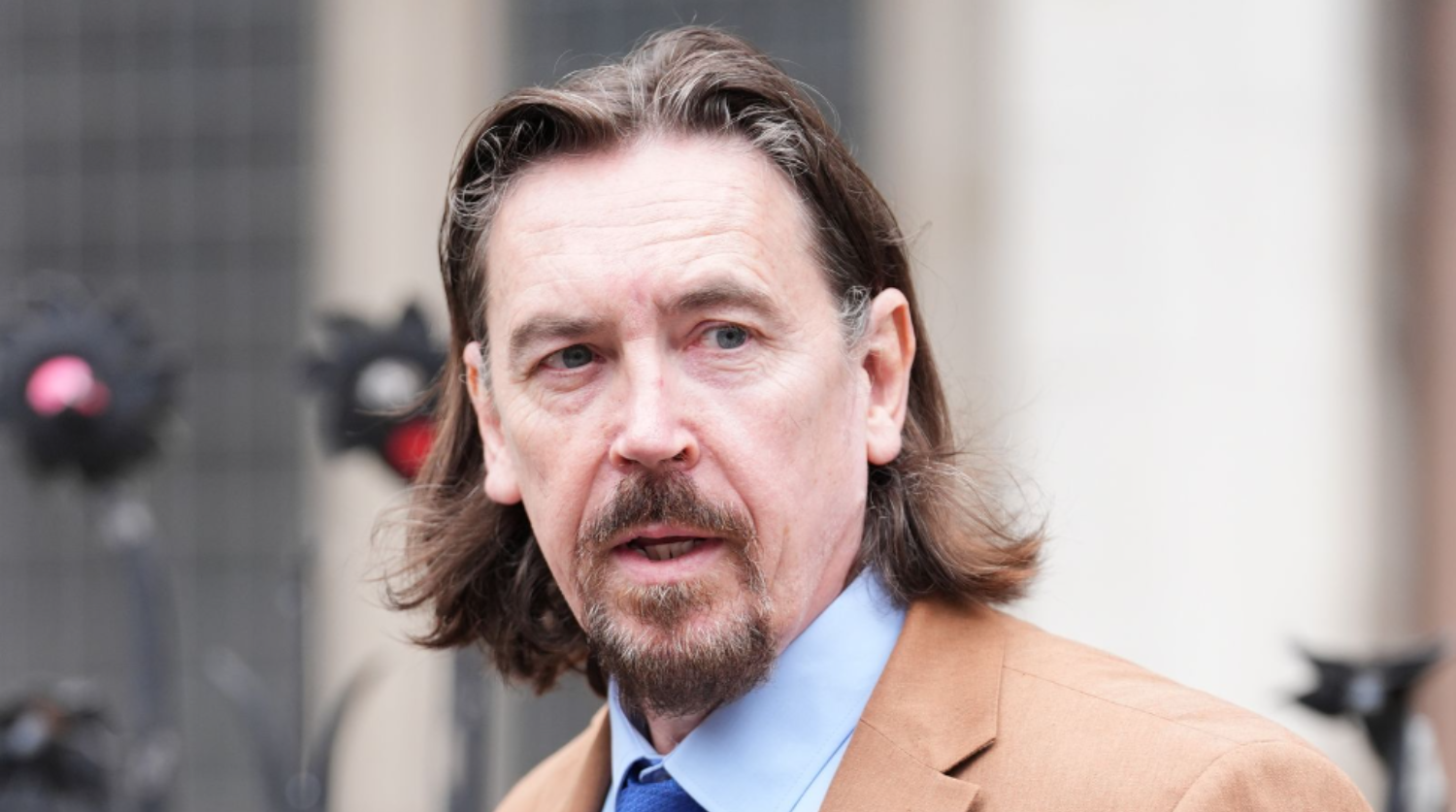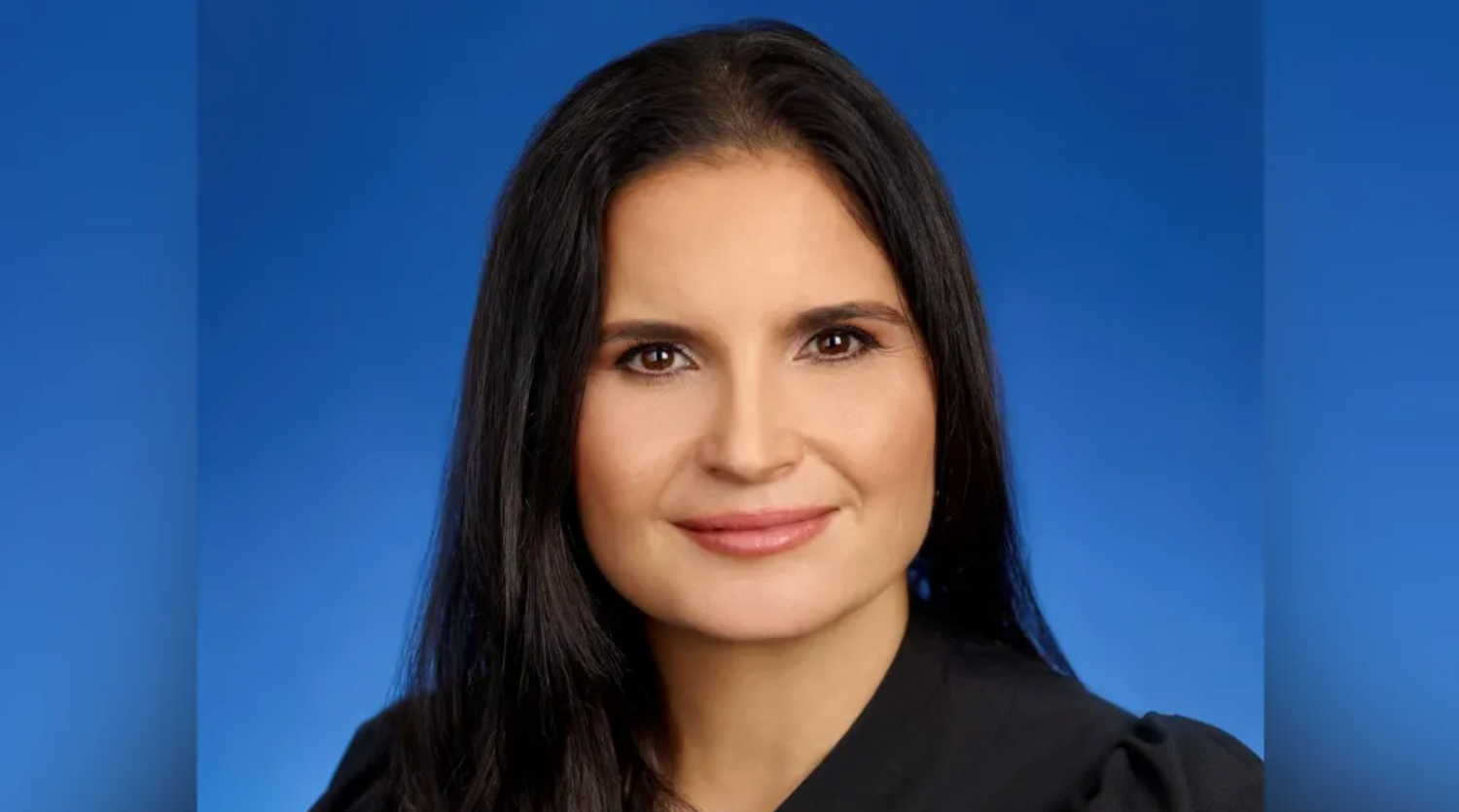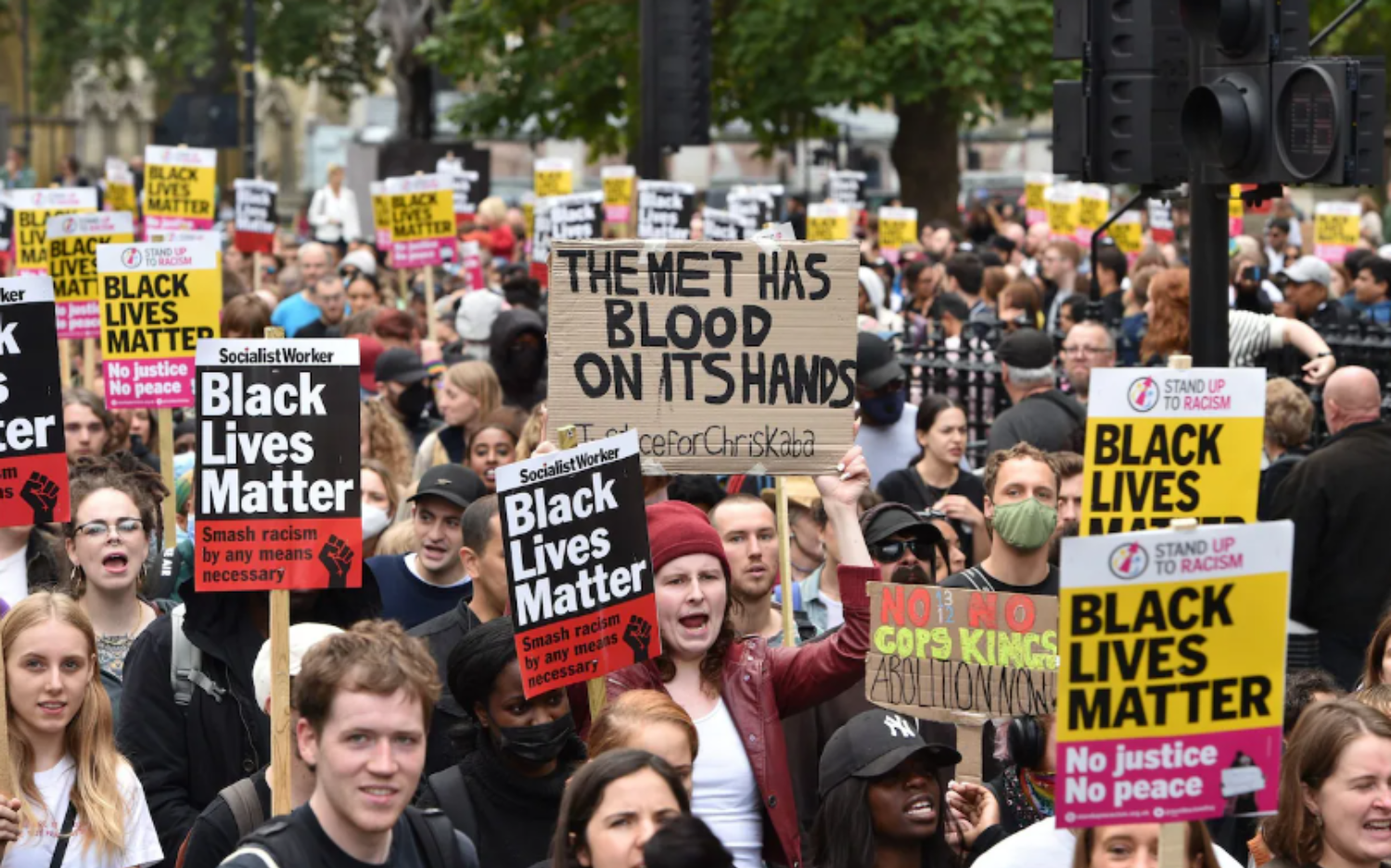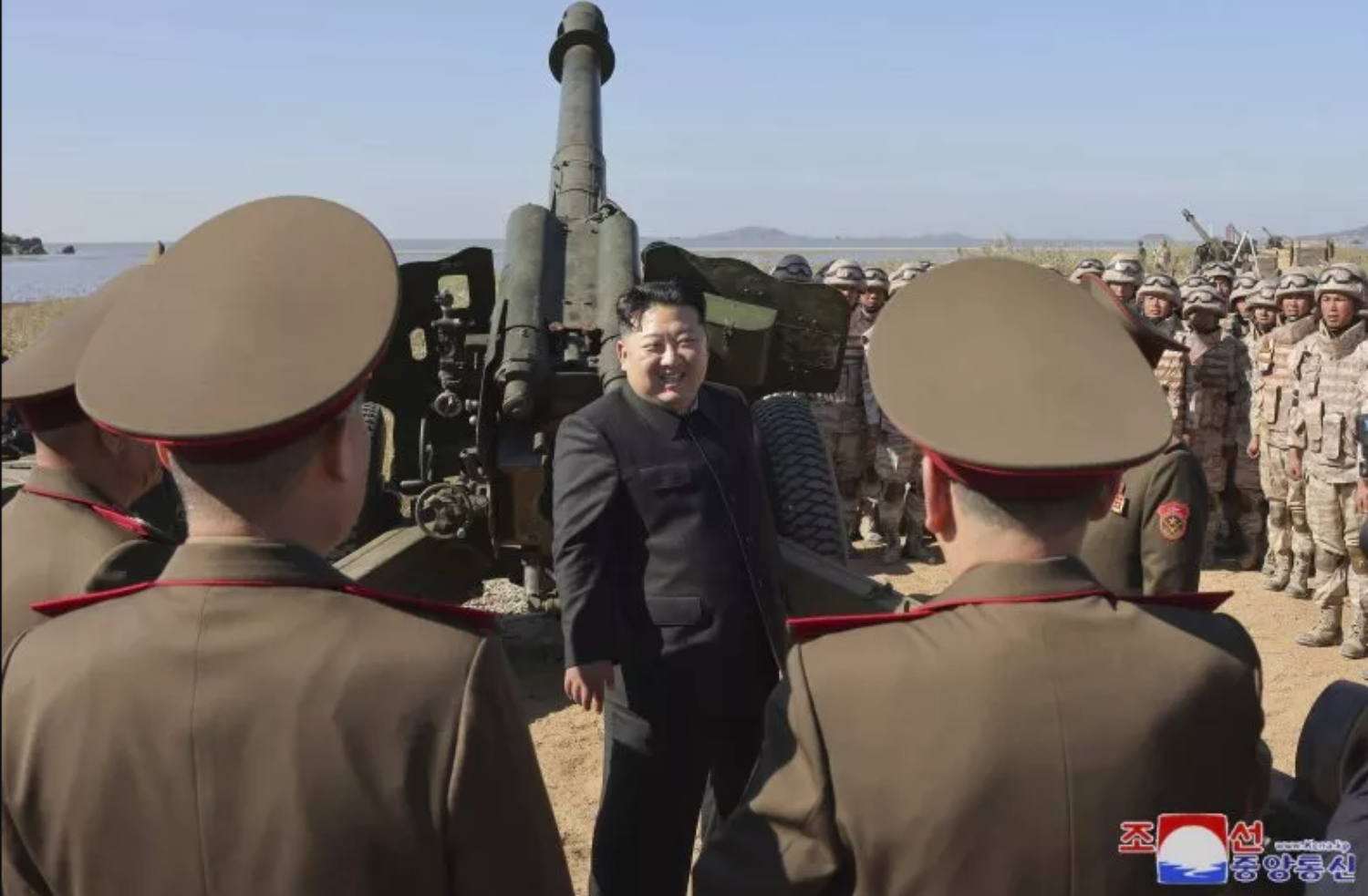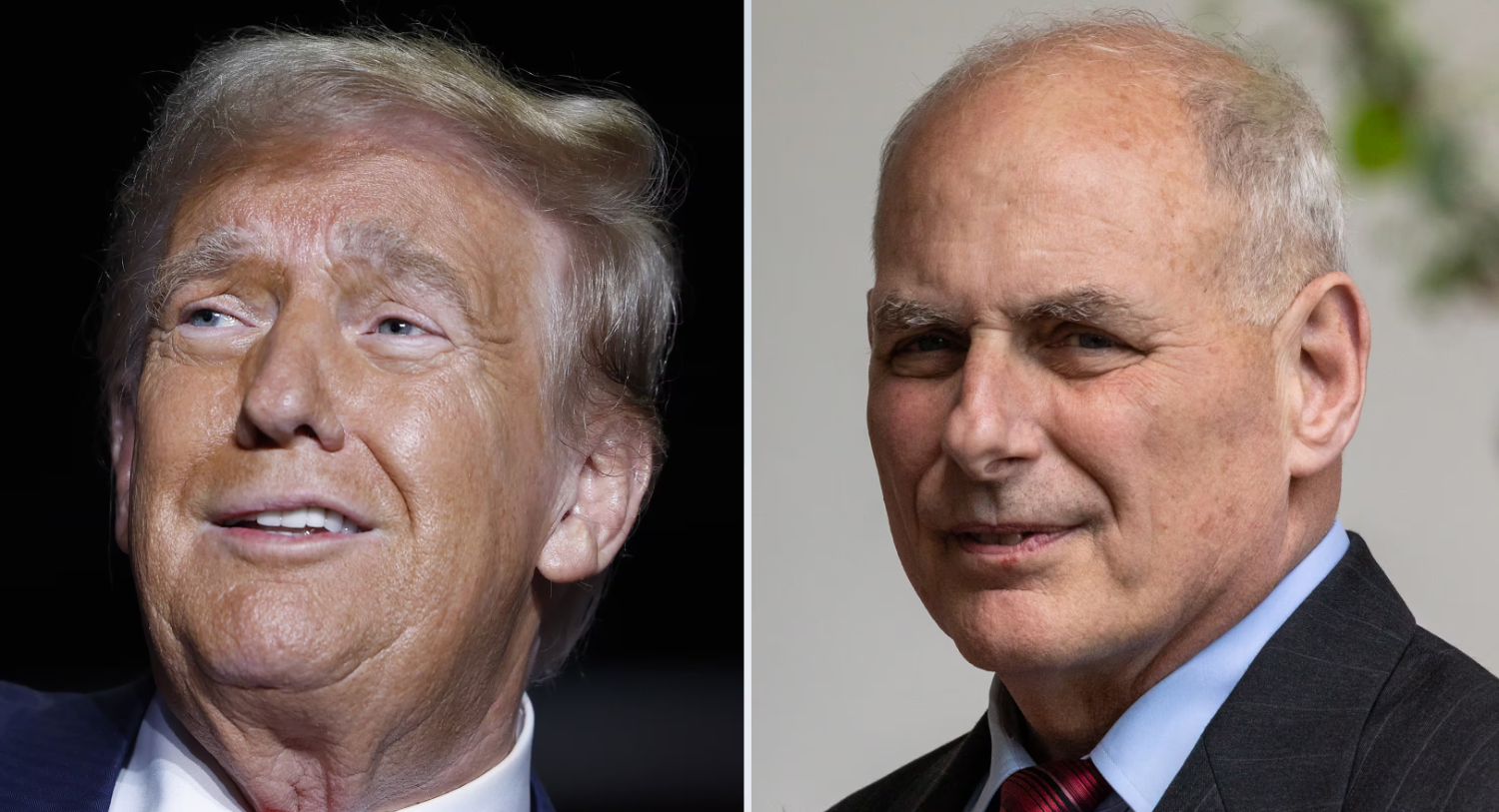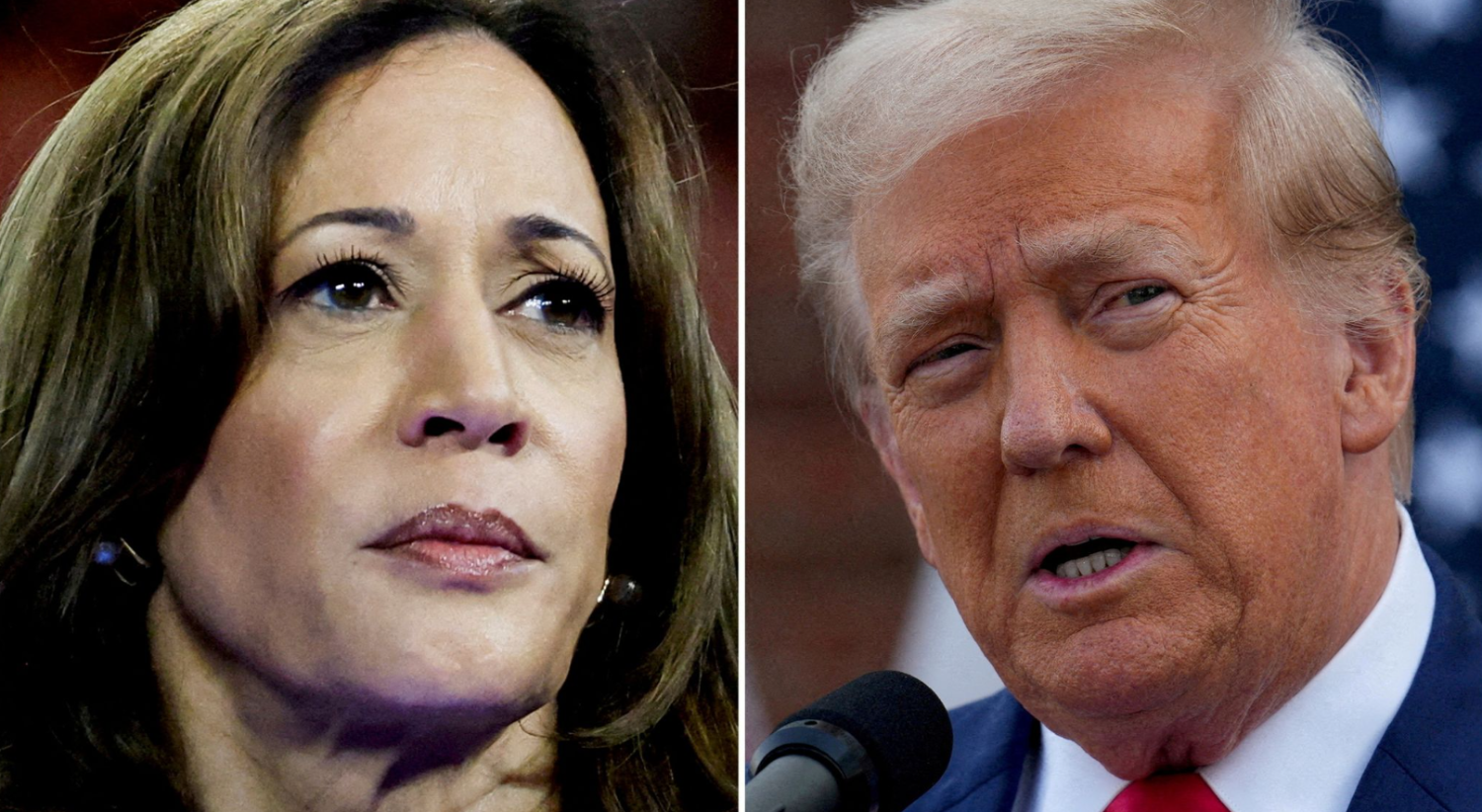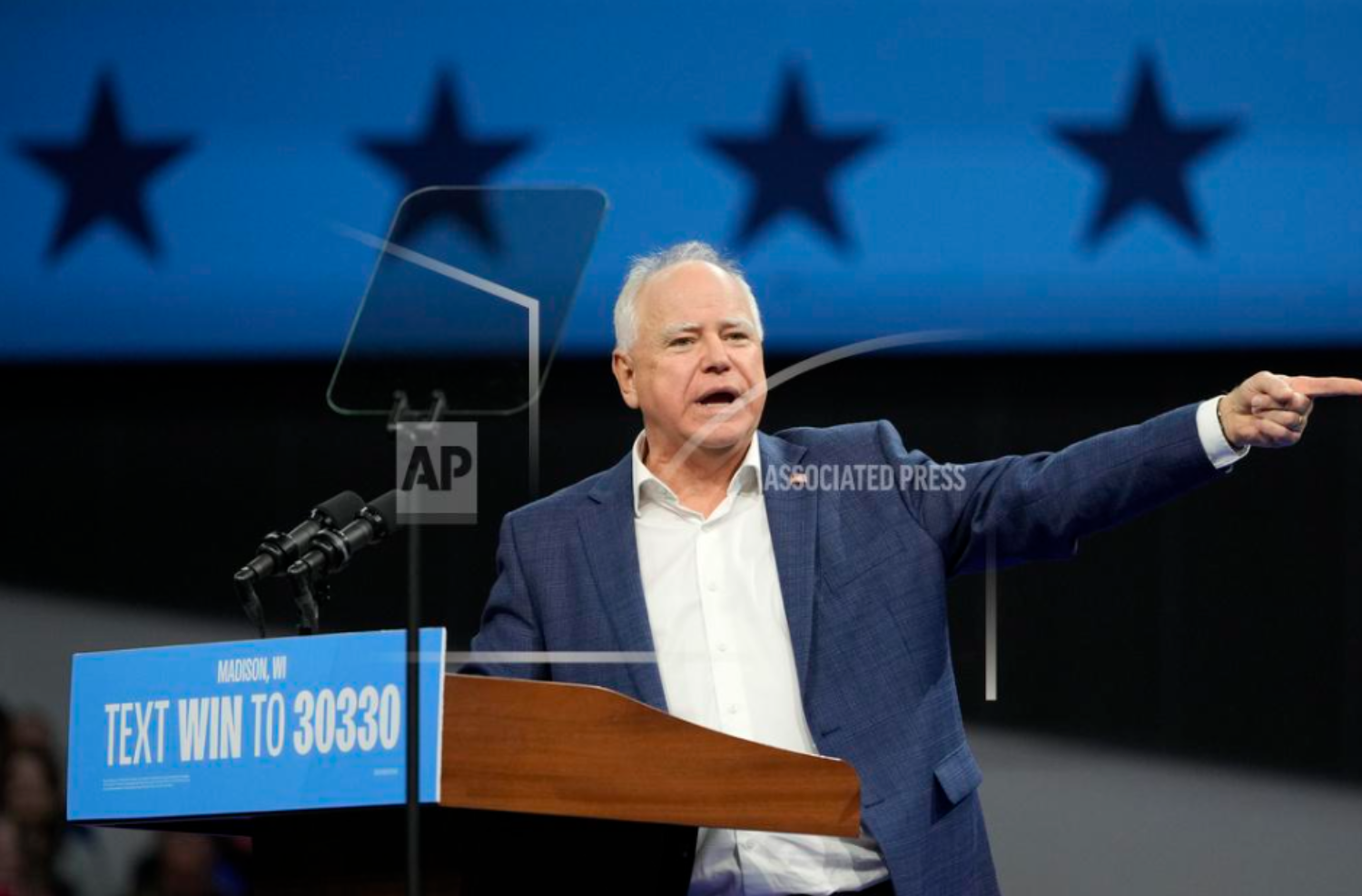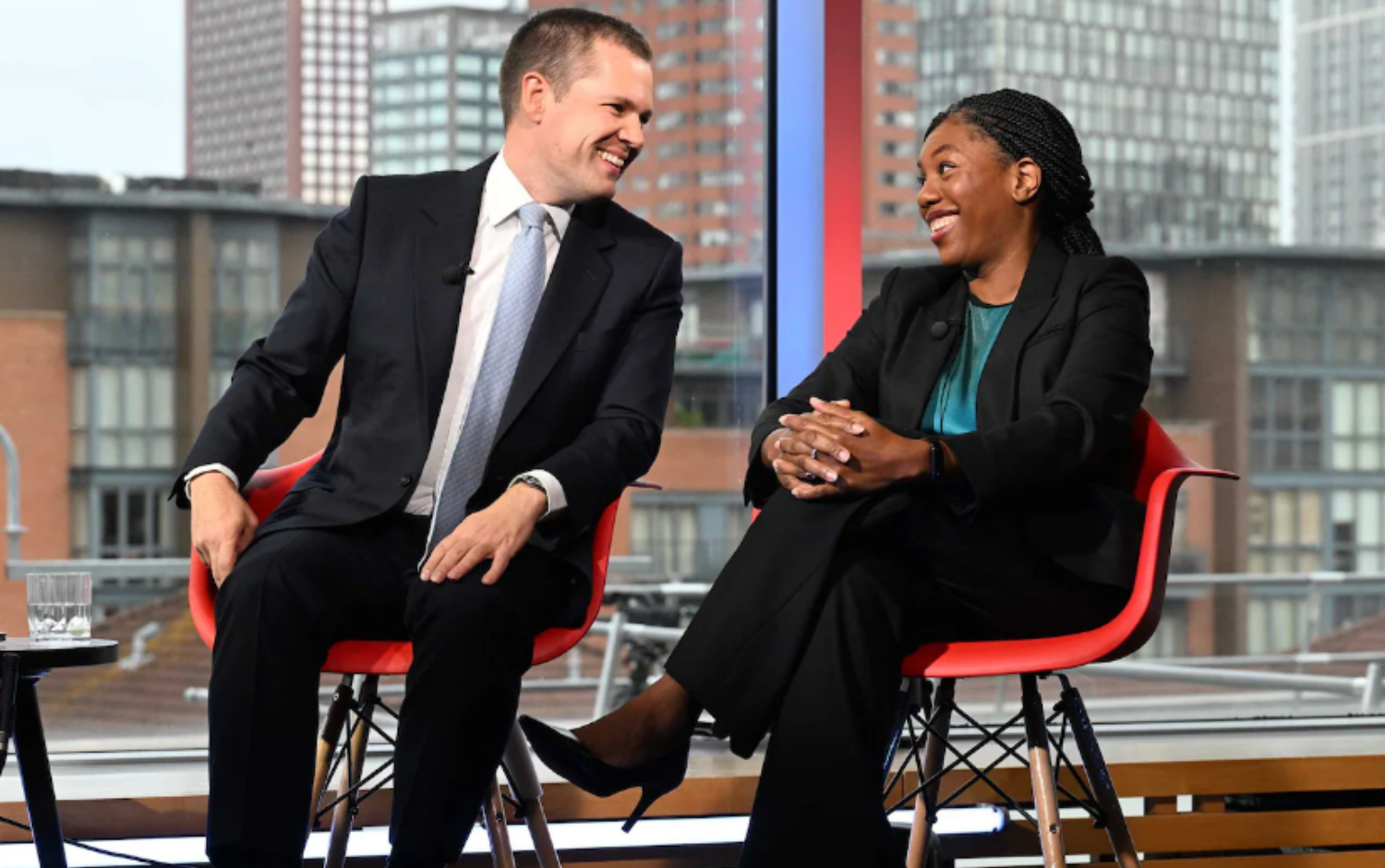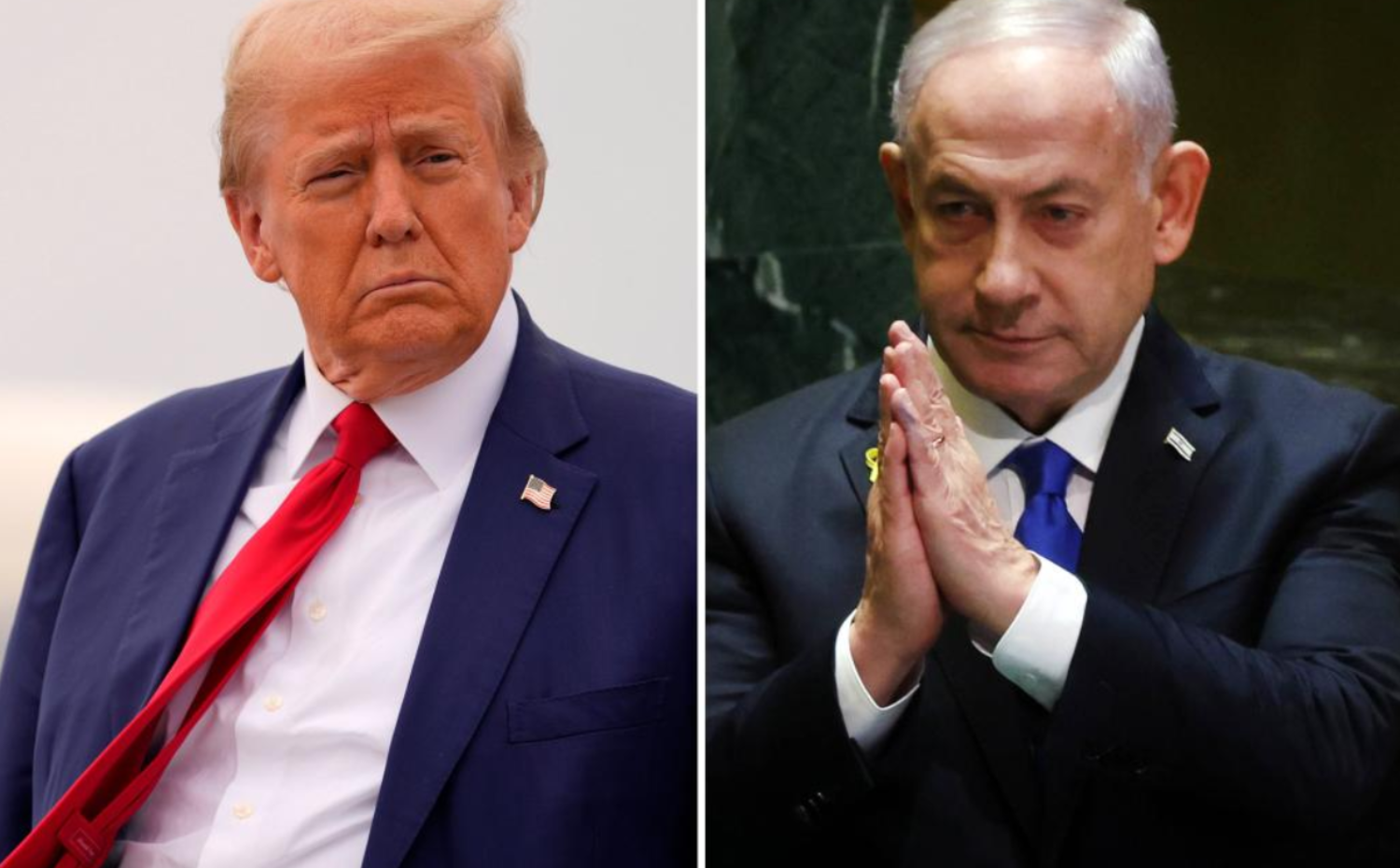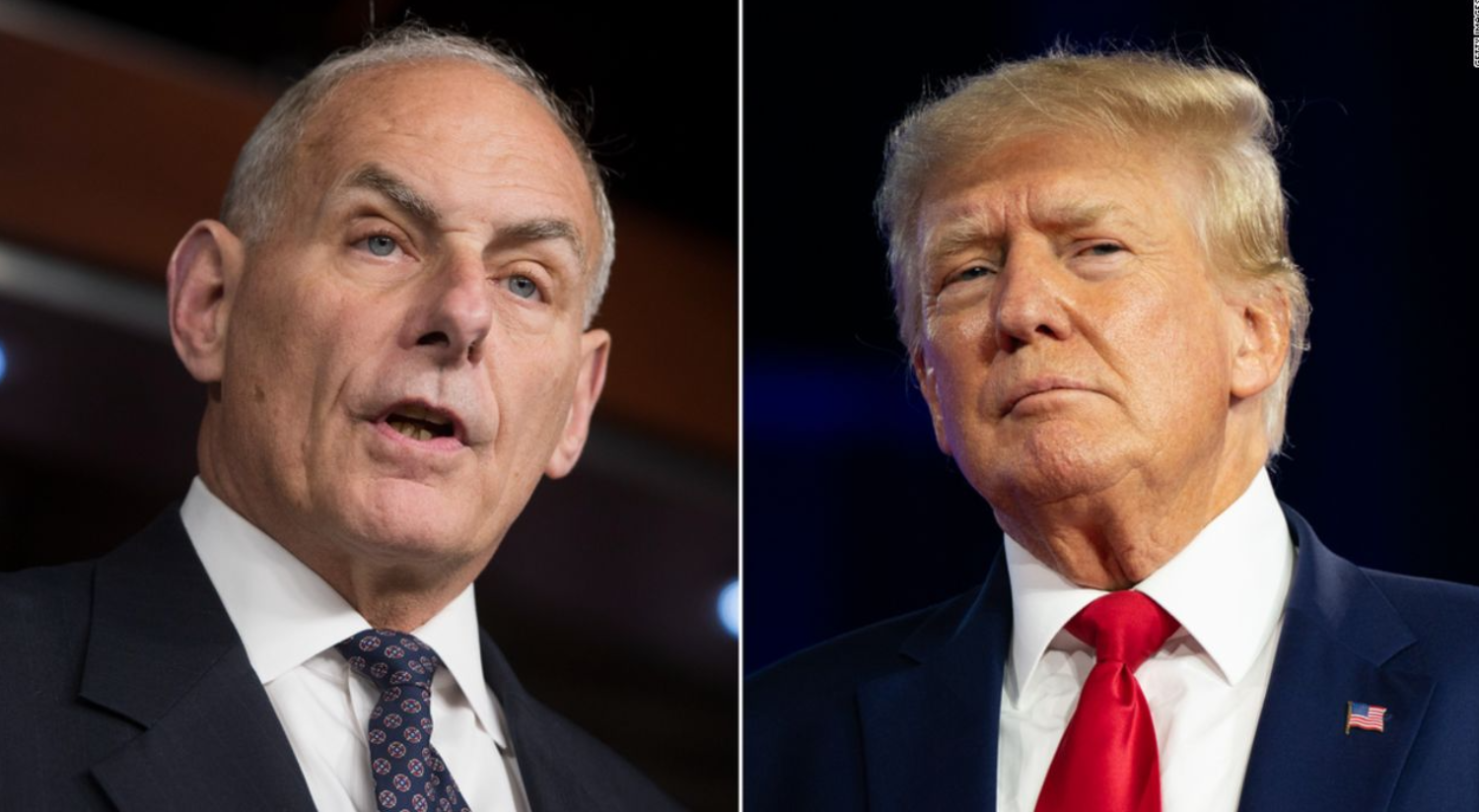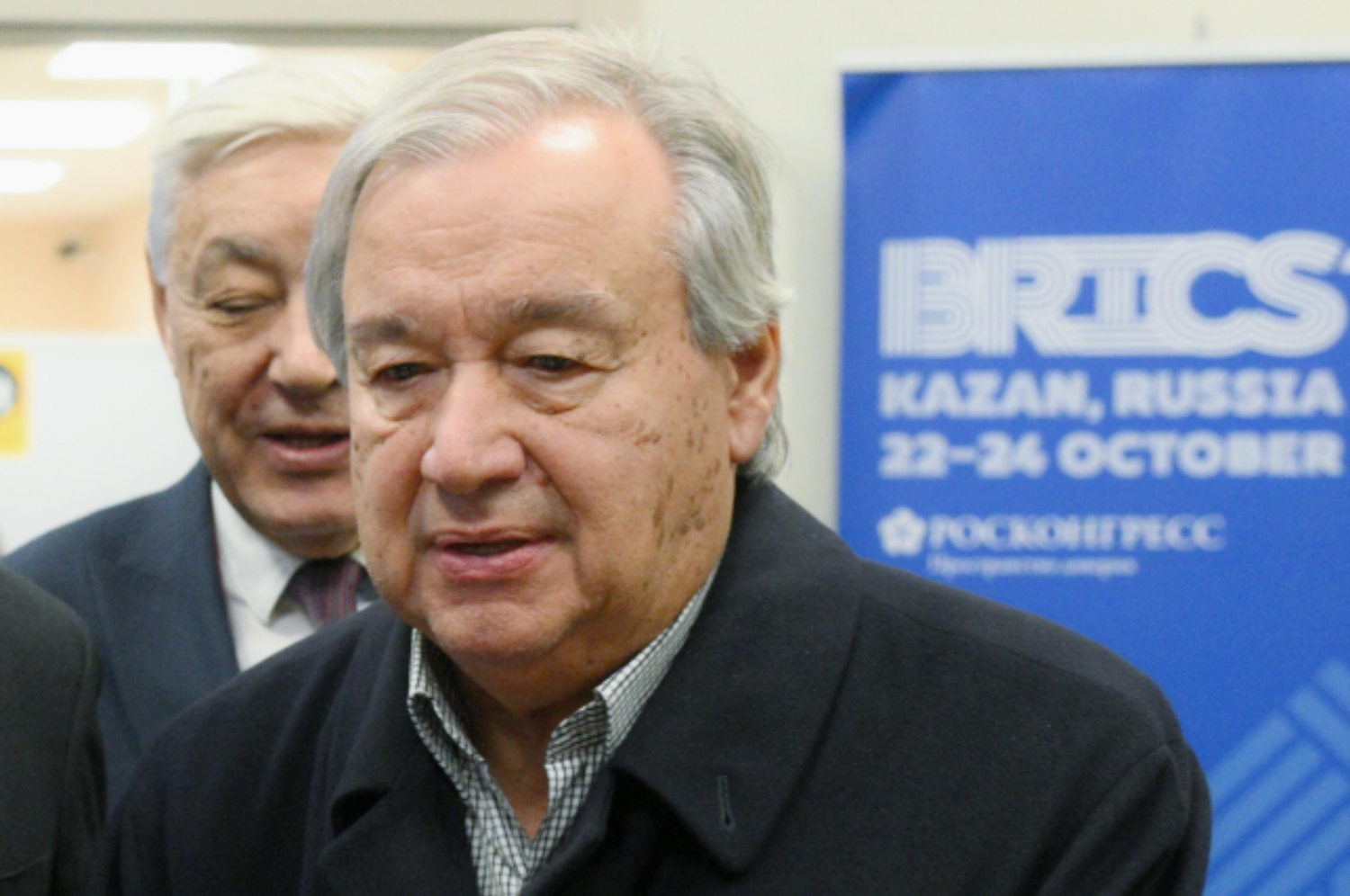-
Posts
10,759 -
Joined
-
Last visited
Content Type
Events
Forums
Downloads
Quizzes
Gallery
Blogs
Everything posted by Social Media
-
Martin Hibbert and his daughter Eve, survivors of the devastating Manchester Arena bombing in 2017, have won a legal case against conspiracy theorist Richard Hall, who falsely claimed the attack was staged. Hall, a former television producer, has repeatedly alleged without any basis that the bombing, which occurred at an Ariana Grande concert, was an "elaborate hoax" orchestrated by British government agencies. He even went so far as to suggest that no one was genuinely injured during the attack, despite the well-documented physical and emotional toll on the victims. Hall defended his actions by claiming he was acting in the public interest, positioning himself as a self-styled journalist exposing what he called a lie bought by millions of people. However, this defense was rejected by the court. The Manchester Arena bombing was a suicide attack carried out by Salman Abedi, who detonated a homemade bomb in a crowd leaving the concert on May 22, 2017. The attack killed 22 people and left hundreds more injured. For Martin and Eve Hibbert, the ruling offers some measure of justice after enduring years of pain and distress, both from the attack and from the conspiracy theories that sought to diminish their experience. Based on a report from Sky News 2024-10-25
-
Federal Judge Aileen Cannon, who gained attention after dismissing Donald Trump’s classified documents case in July, is being considered as a potential candidate for attorney general in a possible second Trump administration. According to multiple sources familiar with the situation, Cannon's name is included on a proposed personnel list that is currently circulating within Trump’s campaign and transition team. This document, titled “Transition Planning: Legal Principals,” outlines potential candidates for key legal positions, including the Department of Justice, the FBI, and U.S. attorneys’ offices. Sources have indicated that Trump’s top advisers, with input from Boris Epshteyn, who manages Trump’s legal team, were responsible for drafting the list. Cannon’s name reportedly appears second, right after Jay Clayton, former chairman of the U.S. Securities and Exchange Commission. The list of possible candidates for attorney general includes nearly a dozen names, and sources confirmed that Cannon’s inclusion came after she dismissed the classified documents case over the summer. Cannon’s ties to Trump date back to 2020, when the former president nominated her to serve as a U.S. district judge for the Southern District of Florida. Trump has openly praised Cannon for dismissing the 40 criminal counts brought against him by special counsel Jack Smith, which related to Trump’s handling of classified documents after leaving the White House. Cannon’s ruling came at a significant time, coinciding with the first day of the Republican National Convention in July. She ruled that Smith’s appointment as special counsel was unconstitutional since he was neither appointed by the president nor confirmed by Congress. The special counsel’s office has since appealed her decision. Cannon has not publicly commented on her inclusion in the list, and her chambers did not respond to ABC News’ repeated requests for a statement. It remains unclear how Cannon’s potential consideration for the attorney general role might influence future proceedings in the classified documents case, especially if an appeals court overturns her ruling. When contacted, a spokesperson for the special counsel’s office also declined to comment. In a related case, Ryan Routh, a man accused of attempting to assassinate Trump at one of his Florida golf clubs, recently asked Cannon to recuse herself from his case. Routh’s legal team argued that Cannon’s potential career advancement, should Trump win re-election, presented a conflict of interest. However, the Department of Justice opposed this motion, stating that no legal authority required Cannon’s recusal. Sources familiar with the proposed transition plan have noted that some figures from Trump’s first administration are also under consideration for top posts at the Department of Justice. Among them are Steve Engel, a former assistant attorney general in the DOJ's Office of Legal Counsel, and Will Levi, who served as chief of staff to former Attorney General Bill Barr. Other potential candidates have publicly encouraged Trump to break with traditional norms that maintain the independence between the White House and the nation's law enforcement agencies. Based on a report from ABC News 2024-10-25
-
The tragic case of Chris Kaba, a man fatally shot by police in 2022, has become a flashpoint for discussions around race, policing, and justice in the UK. However, rather than waiting for the facts to emerge, many on the political Left rushed to frame Kaba as an innocent victim, distorting the narrative to fit their own agendas. The story of Chris Kaba, a man involved in dangerous activities, is a stark reminder of how preemptive judgments can lead to public misinformation. Soon after Kaba’s death, Labour MP Diane Abbott was one of the first to comment publicly. In a September 2022 article for *Morning Star*, a hard-left newspaper, she lamented the "terrible fate of Chris Kaba," claiming that "people can lose their lives even when going about their daily lives." Yet, as subsequent investigations revealed, Kaba wasn’t simply going about his daily routine. He was behind the wheel of an Audi believed to be linked to a recent shooting, and when police ordered him to stop, he rammed the vehicle into a police car, endangering those around him. Mike Graham hits out at London Mayor Sadiq Khan for his "distasteful" sympathy for Chris Kaba, who was shot and killed by police. Isabel Oakeshott: "He was a violent, drug-dealing thug! I'd like to see that little pip-squeak of a politician try to do the job of police!" The real question is how so many on the Left managed to construct a narrative of Kaba as an “aspiring architect” and “father-to-be” without considering the broader context of his life and actions. They seemed determined to turn him into a martyr, a British equivalent of George Floyd, without pausing to reflect on who he truly was. It appears that in their haste to signal virtue and draw parallels with other tragic cases, many chose to ignore inconvenient truths about Kaba’s dangerous behavior. In doing so, they risk undermining the credibility of the very causes they seek to champion. Based on a report from the Daily Telegraph 2024-10-25
-
A United Nations report has shed light on the growing debate surrounding transgender athletes in women’s sports, revealing that female athletes have lost nearly 900 medals to transgender competitors. The report, titled “Violence against women and girls in sports,” found that more than 600 women have been outcompeted by athletes who were born male, sparking a fresh wave of controversy and concern. According to the report, “by 30 March 2024, over 600 female athletes in more than 400 competitions have lost more than 890 medals in 29 different sports.” It pointed to the increasing inclusion of transgender athletes in female sports categories, which it claims has resulted in a growing number of women losing out on opportunities and recognition. “The replacement of the female sports category with a mixed-sex category has resulted in an increasing number of female athletes losing opportunities, including medals, when competing against males,” the report stated. The report, authored by Reem Alsalem, the UN special rapporteur on violence against women and girls, was presented to the UN General Assembly earlier this month. It highlights the challenges faced by female athletes in the wake of policies implemented by various international federations and national governing bodies, which have allowed transgender athletes to compete in women’s sporting categories. While the report does not provide specific details on the sporting events or the timeframe over which these losses occurred, Alsalem emphasized that male athletes tend to have physical advantages, such as greater strength and higher testosterone levels, which can affect fairness in certain sports. “Some sports federations mandate testosterone suppression for athletes in order to qualify for female categories in elite sports,” Alsalem wrote. “However, pharmaceutical testosterone suppression for genetically male athletes — irrespective of how they identify — will not eliminate the set of comparative performance advantages they have already acquired.” Alsalem argued that the current approach to testosterone regulation is flawed and fails to level the playing field for female athletes. “The testosterone levels deemed acceptable by any sporting body are, at best, not evidence-based, arbitrary and asymmetrically favor males,” she wrote, adding that this could also harm the health of the athletes involved. The findings of the report have led Alsalem to call for stronger protections for women and girls in sports. She advocated for the creation of open categories that would allow athletes of different sexes to compete together while maintaining separate female-only categories. She also recommended the introduction of “non-invasive, confidential, and simple sex screenings” to ensure fairness for women in sports. In addition to the debate over transgender participation, the report highlighted other challenges that women face in sports, including harmful social stereotypes, sexism, and limited access to training facilities and resources. “Women and girls already have many odds stacked against them that impede their equal and effective participation in sports. In addition, their ability to play sport in conditions of safety, dignity, and fairness has been further eroded by the intrusion of males who identify as female in female-only sports and related spaces,” Alsalem said. The release of this report comes at a time when the issue of transgender athletes in women’s sports remains highly contentious, particularly as the topic gains prominence ahead of upcoming elections. In New York, billboards have sprung up opposing the state’s proposed "Equal Rights Amendment," which critics argue would further allow transgender athletes to compete in women’s sports. One such billboard in Syracuse reads, “Vote No to ERASING Women,” encouraging voters to reject the proposal on November 5th. As debates around the inclusion of transgender athletes in women’s sports intensify, the findings of the UN report will likely add fuel to an already heated conversation about fairness, inclusion, and the future of women’s sports. Based on a report from NYP 2024-10-25
-
Dr. Johanna Olson-Kennedy, a prominent advocate for transgender rights and gender-affirming care, recently admitted to withholding the publication of a $10 million, taxpayer-funded study on the effects of puberty blockers on American children. Despite the widespread use of these treatments, the study found no evidence that they improve the mental health of trans-identifying youth. Olson-Kennedy explained that she was concerned the findings could be "weaponized" by critics and used in court to argue against the use of puberty blockers. In an interview with *The New York Times*, Olson-Kennedy acknowledged that while the research was significant, she feared the results could fuel legal challenges to transgender care for minors. "I do not want our work to be weaponized," she said. "It has to be exactly on point, clear and concise. And that takes time." Olson-Kennedy, who frequently testifies in legal battles over state bans on gender-affirming care, admitted that the study’s lack of mental health improvements might one day be used to argue that puberty blockers should not be prescribed. The National Institutes of Health-funded study, which began in 2015, involved 95 children with an average age of 11. These children were given puberty blockers to delay the physical changes that occur during adolescence, such as breast development or voice deepening. After two years of follow-up, the study concluded that the treatments had no significant impact on the participants' mental health. Olson-Kennedy suggested this could be because the children were already in good mental health when the study began, but earlier data contradicted this, showing that about 25% of the participants were suffering from depression or suicidal thoughts before receiving treatment. The study’s findings also challenge a widely cited 2011 Dutch study, which found that children treated with puberty blockers experienced improved mental health and fewer emotional issues. That research has been a cornerstone in the argument for providing such treatments to trans-identifying youth. However, Olson-Kennedy’s more recent study did not replicate those results, leading to questions about the effectiveness of puberty blockers for mental health support. Critics, including Amy Tishelman, a fellow researcher on the project, have voiced concerns about the decision to withhold the findings. Tishelman acknowledged the fear of the results being misused but emphasized the importance of making the research public. "No change isn’t necessarily a negative finding," she said, suggesting that the lack of improvement could still offer valuable insights into the preventative aspects of puberty blockers. "We just don’t know without more investigation." Erica Anderson, a clinical psychologist and expert on transgender youth, expressed shock at the decision to keep the data hidden. She argued that withholding such vital information is contrary to the scientific process. "You do research, and then you disclose what the results are," Anderson told *The Post*. "You don’t change them, you don’t distort them, and you don’t reveal or not reveal them based on the reactions of others." Olson-Kennedy’s reluctance to release the study results comes amid growing debate in the U.S. over the use of puberty blockers and other medical treatments for transgender youth. A recent Washington Post-KFF survey found that 68% of U.S. adults are against providing puberty blockers to children aged 10 to 14, and 58% oppose hormone treatments for those aged 15 to 17. In April, England’s National Health Service (NHS) discontinued the use of puberty blockers for children after a four-year review by independent researcher Dr. Hilary Cass. The report concluded that "for most young people, a medical pathway will not be the best way to manage their gender-related distress." Similarly, Dr. Riittakerttu Kaltiala, a Finnish expert on pediatric gender medicine, stated in 2023 that "four out of five" children questioning their gender eventually reconcile with their biological sex without medical intervention. Despite mounting questions over the efficacy of puberty blockers, Olson-Kennedy has yet to respond to *The Post*’s request for further comment. However, her admission of deliberately withholding the study has ignited a debate over the balance between scientific integrity and advocacy in the field of transgender care for minors. Based on a report from NYP 2024-10-25
-
Kim Jong Un has issued a stark warning about North Korea's nuclear ambitions, emphasizing the need to bolster its "strategic deterrence" in response to what he claims is the "ever-increasing threat" posed by the United States' nuclear arsenal. During a visit to one of North Korea's strategic missile bases, Kim expressed concern over the growing risks to the Democratic People's Republic of Korea, citing the U.S. as a primary threat to its security. He remarked that the U.S. nuclear arsenal represents "ever-increasing threats to the security environment of the Democratic People's Republic of Korea." In his address, Kim emphasized the need to not only modernize but also fortify North Korea’s missile capabilities. According to the Korean Central News Agency (KCNA), the North Korean leader is adamant about enhancing the country's strategic missile bases to meet what he perceives as escalating threats. North Korea, which faces significant international sanctions due to its continued development of ballistic missiles and nuclear weaponry, has remained secretive about the actual size of its nuclear arsenal. However, in July, the Federation of American Scientists estimated that North Korea may possess enough fissile material to construct up to 90 nuclear warheads. Kim has not been shy about North Korea’s willingness to utilize its military might. Just a few weeks ago, he issued a chilling statement asserting that North Korea would "without hesitation use all its attack capabilities against its enemies" if military forces were deployed against the regime. "The use of nuclear weapons is not ruled out in this case," he declared in a speech delivered on October 7 at the Kim Jong Un University of National Defense, signaling a clear willingness to consider nuclear options in the event of conflict. Sydney Seiler, a former national intelligence officer specializing in North Korea, raised alarms over the broader implications of Kim Jong Un’s growing assertiveness. Writing for the Center for Strategic and International Studies, Seiler warned that heightened tensions on the Korean Peninsula could have serious ramifications for the U.S. While these tensions may not appear to be directly related to U.S. domestic affairs, Seiler suggested that the U.S. now faces "a new provocation environment on the peninsula." He further elaborated: "What was once seen as dangerous but ultimately containable North Korean coercive diplomacy could evolve into something more dangerous and fundamentally threatening to the status quo." With North Korea's growing nuclear capabilities and possible backing from Russia, Seiler cautioned that Kim Jong Un might feel emboldened to take greater risks than in the past. "Overconfidence in his nuclear deterrent may lead Kim Jong Un to coercive actions not seen in the recent past," Seiler noted. As North Korea's arsenal continues to grow and its leadership becomes increasingly confrontational, the international community watches with heightened concern. Kim’s rhetoric and actions serve as a reminder of the fragile state of security on the Korean Peninsula and the potentially devastating consequences of any misstep in diplomacy or military engagement. Based on a report from Newsweek 2024-10-25
-
Stacey Williams, a former model, has come forward with serious allegations against former U.S. President Donald Trump, claiming that he groped her in 1993 during an encounter at Trump Tower. Williams, who had previously met Trump through her then-acquaintance Jeffrey Epstein, described the incident as part of what she believes was a "twisted game" between the two men. Trump’s spokesperson has denied the allegations. Williams said she first met Trump in 1992 at a Christmas party, where she was introduced to him by Epstein, who at the time was a close friend of Trump. “It became very clear then that he and Donald were really, really good friends and spent a lot of time together,” Williams explained. Epstein, who was later convicted of sex offenses and died in prison in 2019, had casually dated Williams for a few months. She said that during this time, she became aware of the close relationship between Epstein and Trump. The alleged assault took place in early 1993, when Epstein suggested that they stop by Trump Tower while on a walk. Upon arriving, Williams claims Trump immediately pulled her toward him and began groping her. She described feeling “deeply confused” as Trump put his hands on her breasts, waist, and buttocks. As the incident unfolded, Williams recalled seeing Epstein and Trump exchange smiles, which only heightened her confusion. “I felt like I was caught in some kind of strange game,” she said. Following the alleged assault, Williams shared that Epstein’s demeanor changed abruptly. After they left Trump Tower, she said Epstein became enraged, berating her for what had occurred. “Jeffrey and I left and he didn’t look at me or speak to me,” she said. “When we got down to the sidewalk, he looked at me and just berated me, and said: ‘Why did you let him do that?’” Williams expressed how humiliated and confused she felt by both men’s behavior, describing how she began to feel shame and disgust in the aftermath. Although Williams posted parts of her story on social media in the past, she revealed more details about the alleged encounter during a recent Zoom call organized by Survivors for Kamala, a group supporting Democratic nominee Kamala Harris. The call included notable participants like actor Ashley Judd and law professor Anita Hill. Williams also shared a postcard that Trump allegedly sent her later in 1993. The postcard, which Williams provided to *The Guardian*, featured an aerial view of Trump’s Mar-a-Lago estate in Florida and included a message from Trump: “Stacey – Your home away from home. Love Donald,” written in what appeared to be his signature black Sharpie. Trump’s campaign has vehemently denied Williams’ allegations. Karoline Leavitt, press secretary for Trump’s campaign, issued a statement dismissing the claims, calling them “unequivocally false” and accusing the Harris campaign of fabricating the story for political gain. “These accusations, made by a former activist for Barack Obama and announced on a Harris campaign call two weeks before the election, are obviously a fake story contrived by the Harris campaign,” Leavitt said. Williams, who is now 56 and originally from Pennsylvania, has since distanced herself from Epstein. She stated that she had no knowledge of his criminal behavior at the time, which later became widely known. Epstein is now considered one of the most notorious pedophiles in modern history. Reflecting on the experience, Williams said, “I felt like a piece of meat,” and described how the incident has lingered with her over the years. Though the public spotlight on Epstein’s crimes has grown since his death, Williams’s story adds another layer to the ongoing accusations against Trump, who has faced multiple allegations of sexual misconduct. However, as with previous allegations, Trump’s team has continued to deny any wrongdoing. Based on a report from the Guardian 2024-10-25
-
Former President Donald Trump has launched a scathing attack on his former White House chief of staff, Retired Gen. John Kelly, calling him a "lowlife" and a "total degenerate." This came in response to Kelly's recent comments, in which he criticized Trump’s alleged admiration for authoritarian rulers and his supposed desire for unchecked power. Taking to his Truth Social platform, Trump vehemently denied Kelly's claims, framing them as nothing more than fabrications driven by what he termed "Trump Derangement Syndrome." In his post, Trump expressed gratitude for the support he has received against Kelly's accusations, asserting that his former chief of staff was both “tough and dumb,” qualities he believed did not serve Kelly well. "The problem is his toughness morphed into weakness, because he became JELLO with time!" Trump wrote. He also took aim at a particularly controversial claim made by Kelly about Trump’s disrespect for military personnel. Kelly had alleged that Trump made derogatory comments about soldiers during his presidency, a story Trump was quick to label as a lie. "The story about the Soldiers was A LIE, as are numerous other stories he told," Trump stated emphatically. Despite initially indicating that Kelly was not worth his time, Trump continued his tirade: "Even though I shouldn’t be wasting my time with him, I always feel it’s necessary to hit back in pursuit of THE TRUTH." The former president further accused Kelly of being ineffective during his time in the White House, claiming that he eventually stopped seeking Kelly’s advice altogether. "John Kelly is a LOWLIFE, and a bad General, whose advice in the White House I no longer sought, and told him to MOVE ON!" Trump wrote in the same post. These remarks from Trump followed Kelly’s recent interviews, where he painted a deeply concerning picture of Trump’s mindset. In an interview with *The New York Times*, Kelly went as far as to claim that Trump "certainly falls into the general definition of fascist, for sure." Kelly had also previously told *The Atlantic* that Trump expressed a desire for the U.S. military to show him the same level of loyalty as “Hitler’s generals” did to the Nazi regime during World War II. These comments have not gone unnoticed in political circles. Vice President Kamala Harris’s campaign was quick to amplify Kelly's warnings. In a public statement on Wednesday, Harris condemned Trump's alleged aspirations, calling him “increasingly unhinged and unstable.” She warned that, should Trump win a second term, people like Kelly—who, despite their later differences, had served as a check on some of Trump's more extreme impulses—would no longer be in place to offer resistance. “The bottom line is this, we know what Donald Trump wants. He wants unchecked power,” Harris said. “This is a window into who Donald Trump really is. From the people who know him best.” As the feud between Trump and Kelly escalates, the retired general’s comments have further fueled concerns among Trump's critics about what a potential second term might look like. For now, Trump appears determined to discredit his former chief of staff, even as the broader political implications of Kelly's remarks continue to reverberate. Based on a report from the Hill 2024-10-25
-
With just two weeks left until the 2024 U.S. presidential election, tensions between the candidates are intensifying. Former President Barack Obama joined the campaign trail for Kamala Harris, appearing at a rally in Michigan where he was introduced by none other than rap legend Eminem. Obama even performed a verse of Eminem’s hit song "Lose Yourself," a move that drew attention from both media and political circles. However, Donald Trump wasted no time in responding, dismissing the event and calling Obama "a real jerk." As the election approaches, Kamala Harris made it clear that her team is prepared for a potential legal battle. In an interview with NBC News, she stated that they are ready to challenge any attempt by Trump to declare victory prematurely. The 2024 race has already been marked by intense scrutiny, with concerns about election integrity and voter suppression hanging in the balance. Harris expressed her confidence that America is ready for a female president of color, reflecting on the progress the country has made and the importance of this election for future generations. In contrast, Donald Trump ramped up his personal attacks on Harris. Speaking at an event in Miami, where he was trying to appeal to Latino voters, Trump called her "lazy as hell," a phrase he’s used in previous campaigns to describe his political opponents. His rhetoric took an even sharper turn later that day at a rally in Greensboro, North Carolina, where he called Harris a "stupid person" and went further, asking the crowd, "Does she drink? Is she on drugs?" These aggressive comments highlight the escalating hostility in the race as both candidates push to secure key battleground states. While Harris focuses on policy and preparing for potential electoral disputes, Trump continues to use inflammatory language in an effort to rally his base. As the clock ticks down to Election Day, the outcome remains uncertain, but one thing is clear: this election will be fought until the very last vote is counted. Based on a report from Sky News 2024-10-25
-
A political action committee (PAC) aligned with Elon Musk has drawn the attention of the U.S. Justice Department for a controversial sweepstakes aimed at voters in swing states. The PAC, known as America PAC, offers million-dollar prizes to individuals who sign petitions supporting First and Second Amendment rights. However, the Department of Justice (DOJ) has warned that this unusual tactic might be violating federal laws. Robert Heberle, the head of the DOJ’s Election Crimes Branch, issued a warning letter to an attorney representing America PAC, cautioning that the sweepstakes might breach a federal statute prohibiting the payment of individuals to vote or register to vote. According to a person familiar with the situation, Heberle’s message suggested the sweepstakes could violate this law, which includes penalties of up to five years in prison or fines up to $10,000 for each violation. The source requested anonymity because the letter has not been made public. This warning was first reported by 24sight News. The DOJ has refrained from commenting further on the issue, and Chris Gober, the lawyer for America PAC, has yet to respond to inquiries. As of Tuesday, the PAC claimed to have already awarded four $1 million prizes. Three of the recipients were from Pennsylvania, and one was from North Carolina. Initially promoted as an incentive to get voters in seven key swing states to register, the PAC now refers to the prize winners as spokespeople for the organization rather than simply participants in the sweepstakes. Musk, the founder of Tesla and SpaceX, and owner of X (formerly Twitter), has publicly endorsed former President Donald Trump's attempt to return to the White House. The sweepstakes he supports has prompted legal experts to weigh in, with some saying the offer clearly violates the law. These experts argue that federal statutes make it a felony to offer payments related to voter registration or voting in federal elections. However, there are differing legal opinions on whether the sweepstakes truly violates the law. Some attorneys suggest that Musk’s plan does not constitute a direct payment for voter registration since the prize recipients must have already registered before signing the PAC’s petition. Furthermore, the law requires proof that someone “knowingly or willfully” violated the statute. Musk’s legal team may have advised him in a way that could shield him and the PAC from prosecution. Although concerns have been raised, election-related investigations by the Justice Department tend to be lengthy, sometimes taking months or even years. It is unlikely that this issue will be resolved before voters head to the polls on Election Day. Based on a report from Politico 2024-10-24
-
Minnesota Governor and Democratic vice-presidential nominee Tim Walz launched a sharp critique of Elon Musk during a rally in Madison, Wisconsin. Appearing alongside former President Barack Obama, Walz took aim at Musk’s support for Donald Trump, likening the tech billionaire to Trump’s "running mate" in an unexpected jab. The governor then turned his attention back to Musk. Since purchasing Twitter in 2022 and rebranding it as X, Musk has been increasingly involved in the political arena, funneling money into super PACs such as America and Future Coalition. Musk’s efforts to promote these political action committees have drawn attention, including his controversial plan to randomly hand out $1 million checks to individuals who sign a petition supporting his PAC. Earlier in the month, Musk made headlines when he appeared on stage with Trump at a rally in Butler, Pennsylvania, a location where Trump had been shot earlier in the year. Musk’s performance onstage, which included some energetic jumping, didn’t go unnoticed by Walz, who used it as material for a biting onstage insult in Madison. "Look, Elon is on that stage jumping around skipping like a dips*** on these things," Walz remarked, drawing laughter and applause from the crowd. The mocking tone was clear, as Walz emphasized the spectacle Musk had made of himself during the rally. "You know it," he added, to roaring approval from the audience. Walz’s remarks underscore the growing political entanglement of Musk, once known primarily for his roles at Tesla and SpaceX, and now increasingly seen as a figure with significant influence in conservative political circles. With Musk’s overt political donations and his public appearances alongside Trump, he has become a target for Democratic figures like Walz, who are eager to call attention to Musk's role in bolstering Trump’s platform as they work to galvanize voter support. Based on a report from the Independent | X 2024-10-24
-
Meta, the parent company of Instagram and Threads, recently suspended accounts that tracked the private jets of public figures, including Meta’s CEO Mark Zuckerberg and former president Donald Trump. This move mirrors actions taken by Elon Musk’s X (formerly Twitter), which sparked controversy over the balance between privacy and free speech. Meta's decision to block these accounts comes after they posted publicly available flight data about the private jets of well-known figures like Zuckerberg, Musk, Jeff Bezos, Bill Gates, Kim Kardashian, Kylie Jenner, and Florida Governor Ron DeSantis. Alongside this data, the accounts also shared estimates of the carbon emissions generated by these flights. However, the posts did not disclose who was on the planes or the purpose of the flights. Meta's spokesperson Andy Stone stated that the accounts were disabled for “violating our privacy policy” and posing a “risk of physical harm to individuals.” According to Stone, this decision was based on a recommendation from Meta’s Oversight Board. However, the board’s 2022 guidance primarily addressed the sharing of private residential information, such as home addresses, and did not reference flight or travel data. This leaves ambiguity around the platform's rules for posting information about public figures’ travel. The flight information tracked by these accounts, though publicly available, has been used by journalists and researchers to report on public figures. For instance, details about Elon Musk’s private jet flights have been included in news stories that documented his travels across Pennsylvania during the 2020 U.S. presidential election to attend rallies in support of Donald Trump. Jack Sweeney, a college student from the University of Central Florida, ran many of these jet-tracking accounts, including those on Instagram and Threads. He said that Meta provided no warning or explanation before suspending his accounts. "This is exactly what Elon did," Sweeney remarked, referencing Musk’s earlier move to block his X accounts. Sweeney defended the accounts, stating that “this information has journalistic value. It lets you see what these people are working on with the businesses they run. It brings awareness to the climate, that these people are flying all around the world.” Sweeney was also critical of Meta’s justification, arguing that the planes he tracks are not private residences. “The jets I track are not ‘private residences’ even if you claimed they sleep on the plane,” he said. After X suspended Sweeney’s accounts in 2022, the platform also temporarily suspended several journalists, including one who reported on the account suspensions. While X now prohibits real-time location sharing, Sweeney continues to post about Musk's jet on X, but with a 24-hour delay. Alex Howard, a government transparency advocate, criticized Meta's decision on Threads, writing, “Meta has just created an opaque offline privacy policy for certain oligarchs & public figures that [Zuckerberg] will enforce when & how he wishes.” Meta sought advice from its Oversight Board on broader privacy concerns but did not ask specifically about flight data. The board suggested that Meta consider suspensions for serious violations where sharing private residential information leads to threats of violence or harassment. Stone declined to comment on whether any specific incidents of physical harm were linked to the jet-tracking accounts or if anyone had requested the suspension of the accounts. In a related incident, representatives of singer Taylor Swift threatened to sue Sweeney for “stalking and harassing behavior” earlier this year, though no legal action has been taken. An account tracking Swift’s private jet had already been suspended. Musk, Bezos, and Swift’s representatives did not respond to requests for comment. Meta’s decision, much like Musk’s, has reignited debates over the tension between protecting privacy and allowing public access to information that can hold powerful figures accountable. Based on a report from the WP | X 2024-10-24
-
At this crucial juncture, our party stands at a crossroads, but I am confident that, with the right leadership, we can meet the moment. Leadership contests give us the opportunity to reflect, renew, and move forward. Both Kemi Badenoch and Robert Jenrick have stepped up to the plate, not merely out of personal ambition but from a profound sense of duty to the party and the country. Their determination to tackle the challenges before us is evident, and I believe either of them would lead with distinction. As we navigate these testing times, it’s critical that our next leader embodies the values, vision, and authenticity needed to steer Britain through the storm. In recent years, we've not always struck the right balance. We all share responsibility for the missed opportunities following the 2019 election, but we cannot dwell on past mistakes. Our party has proven time and again that when united behind a compelling vision, we can rebuild, inspire, and lead. We can do it again. Kemi and Robert have demonstrated an acute understanding of the pressing issues facing our nation: immigration, economic growth, policing, and national identity. These aren't mere political talking points but critical issues that impact the daily lives of people across the country. It’s essential that we address these challenges honestly and openly. Too often, we’ve avoided or diluted tough conversations. Our voters expect transparency, and they deserve it. This is how we will reclaim our place as the voice of the hardworking, patriotic majority. We must reject half-measures and decline management. Instead, our vision must be bold, anchored in the values that have always strengthened our party: responsibility, fairness, and opportunity for all. We cannot rely on Labour’s weaknesses to carry us forward. Yes, Labour is faltering, and Keir Starmer’s leadership is uninspiring, but we must guard against complacency. The political landscape is shifting rapidly, and we must adapt. While the challenges we face are daunting, we have overcome adversity before. With the right leader, we will do it again. The trust of the British people is something that we must earn through action, not rhetoric. One of the key issues that has caused disillusionment among our supporters is our failure to control legal migration and halt the small boats. This is a matter central to our nation’s future, and we must offer clear, decisive solutions. Before we can expand our support, we need to rebuild trust with our core voters by proving that we are serious about tackling the global migration crisis. For this reason, I am throwing my full support behind Robert Jenrick. He has laid out clear policies on defence, housing, economic growth, and energy, and his principled resignation from government was a bold statement of conviction. This is exactly the kind of leadership we need. Robert has presented a strong, unambiguous plan to address the issues that matter most to our voters, and he understands that leadership is about more than just vision; it requires the determination to see it through, even when the road is tough. We cannot afford to be timid or hesitant. We need a leader with clarity, strength, and courage—someone who will face challenges head-on. Robert Jenrick is that leader. His proposal to reform migration policy by withdrawing from the European Convention on Human Rights (ECHR) and imposing visa caps is not just a necessity; it is the foundation upon which we can rebuild trust and win back voters who have lost faith. With my decades of experience working within these legal frameworks, from immigration barrister to Attorney General and Home Secretary, I am convinced that this is the responsible path forward. Our party is at a turning point, but I am confident that with the right leadership, we can rise to the occasion. We’ve done it before, and we will do it again. With courage, conviction, and a clear sense of purpose, we can lead Britain into a new era of opportunity and prosperity. Robert Jenrick has the vision and resolve to take us there, and I believe he is the leader who can unite us and deliver the future Britain deserves. Based on a report from the Daily Telegraph | X 2024-10-24
-
Former U.S. President Donald Trump has encouraged Israeli Prime Minister Benjamin Netanyahu to act independently regarding a potential retaliatory strike against Iran. In an interview with Saudi state-owned news outlet Al Arabiya, which aired on Sunday, Trump expressed his support for Netanyahu's decision-making in response to Iran’s recent missile barrage against Israel. “Well, I think [Netanyahu is] going to do what he wants to do. And I think he has to do that,” Trump stated when asked about possible Israeli airstrikes on Iran in retaliation for the October 1 missile attack. Trump also criticized current U.S. President Joe Biden's foreign policy approach, calling it “horrible” and urged Netanyahu to follow a path contrary to Biden’s advice. “Biden was giving him some very bad – look, Biden has been historically horrible on foreign policy. Incompetent,” Trump said. “I would say what you do is anything [Biden] says, do the opposite, and you’ll be brilliant.” He further implied that Biden's instructions to Netanyahu put Israel in a precarious situation, saying, “[Biden] gave [Bibi] instructions not to do anything, and Israel is under great danger.” In the interview, Trump responded to the suggestion that he might be the only leader capable of ending the ongoing Middle East conflict due to his close ties with Netanyahu. Trump agreed, saying, “I think you’re right. He does listen to me.” While he refrained from disclosing how he would prevent Iran from obtaining nuclear weapons, Trump expressed respect for the Iranian people, labeling them as “great negotiators.” He hinted at the possibility of reaching a diplomatic solution, noting, “In its own way, [Iran is] probably in danger, maybe more so than they would have thought a month ago.” He stressed his desire to avoid further bloodshed, remarking, “I don’t want to see people killed. Everyone’s being killed in the Middle East. I don’t want to see that.” Iran launched roughly 180 ballistic missiles at Israel in retaliation for the Israeli strikes that killed Hezbollah leader Hassan Nasrallah and Hamas political leader Ismail Haniyeh. This recent barrage marks the second direct attack on Israel by Iran since the Hamas terror attack on October 7, 2023. Based on a report from the NYP 2024-10-24
-
In 2019, Charlotte Holmes of Wichita, Kansas, found herself at the center of a life-altering event when a routine checkup with her cardiologist took a sudden turn. Her blood pressure skyrocketed, leading doctors to suspect she was either having a stroke or an impending heart attack. Rushed to the hospital, Charlotte was quickly placed on an intravenous drip. But soon after, her heart stopped. For 11 minutes, she was clinically dead. During those moments, Charlotte says she experienced both heaven and hell in vivid detail. Recalling her story on the Christian TV show *The 700 Club*, Charlotte's husband Danny remembered the eerie atmosphere in the hospital room. “I looked around, and I knew there were no flowers in that room,” he said. “That’s when I knew she was not in this world.” As for Charlotte, who was 68 at the time, she recounted the beginning of her experience: “I could see Danny standing in the corner... I could see all the nurses around." But then, her vision shifted. "I opened my eyes, I looked around at the beauty. I could see the trees, I could see the grass. And everything was swaying with the music, because everything in heaven worships God.” Charlotte described heaven as indescribably beautiful, noting that its magnificence is beyond human comprehension. “It’s so above what we can even imagine – [by] a million times, a million times,” she said, emphasizing that earthly words fall short in conveying what she saw. Led by angels, she recalled feeling “pure joy” and an absence of fear as she entered heaven. There, she was reunited with deceased family members, including her mother, father, and sister, who appeared healthy and vibrant. “They didn’t look old, they didn’t look sick, none of them wore glasses,” Charlotte said. “They looked like they were in their 30s... They looked wonderful.” Among the most profound moments was her encounter with a bright light, which she instinctively knew to be God. Standing alongside Him was a toddler, whom Charlotte identified as her son, lost during pregnancy. “I lost that child,” she shared. “I was five-and-a-half months pregnant. I can remember them holding the baby up and saying, ‘Charlotte, it's a boy.’ Then he was gone.” Seeing the toddler before her, Charlotte was overwhelmed. “I said, ‘God, how is that possible?’ [And] He says, ‘They continue to grow in heaven.’” But her experience was not limited to the joys of heaven. God chose to show her a glimpse of hell. “I looked down, and the smell, and then rotten flesh – that’s what it smelled like – and then screams,” Charlotte recalled. The stark contrast between the beauty of heaven and the horrors of hell was overwhelming. “After seeing the beauty of heaven, the contrast to seeing hell is almost unbearable,” she said. Charlotte remembered God’s words as she witnessed hell: “He says, ‘I show you this to tell you, if some of them do not change their ways, this is where they shall reside.’” The imagery and warnings left a deep impact on her. Soon after, Charlotte heard her father’s voice, telling her to return to the living world and share her experience. At that moment, she felt herself being drawn back into her body and awoke in her hospital bed. She made a full recovery and was released from the hospital two weeks later. Since then, Charlotte has dedicated herself to sharing her story, believing that it carries a powerful message. “People need hope,” she said. “They want to know that there really is something out there, they want to know that everything's OK.” Her belief in heaven is unwavering. “Heaven is more than you can imagine,” Charlotte stated. “I’m so grateful I can look you square in the eye and tell you for sure, heaven is real.” Based on a report from MSN 2024-10-24
-
In a recent interview with *The Atlantic*, retired General John Kelly, who served as White House chief of staff under former President Donald Trump, revealed a startling claim: Trump once praised Adolf Hitler’s generals for their loyalty. This revelation, shared by Kelly in an interview with editor-in-chief Jeffrey Goldberg, supports similar claims made in Peter Baker and Susan Glasser's book, *The Divider: Trump in the White House*. "Jeffrey Goldberg, editor-in-chief of The Atlantic, on his interview with John Kelly: “I think this was probably the most shocking for him — the idea that Donald Trump would regularly tell him how much he admired Hitler.” Goldberg’s report suggests that Trump had become increasingly fascinated with authoritarian leadership during his presidency. According to Goldberg, two individuals who overheard Trump in private conversations at the White House recounted him saying, “I need the kind of generals that Hitler had,” and emphasized Trump’s admiration for those who were "totally loyal" and unquestioningly followed orders. The Trump campaign has strongly denied these allegations. Alex Pfeiffer, a Trump campaign adviser, told *The Atlantic*, “This is absolutely false. President Trump never said this.” In a statement shared with *The Hill*, Pfeiffer reiterated Trump’s respect for the U.S. military, saying that Trump “spent his life caring for America’s military heroes” and highlighted his efforts to support veterans, including securing a significant pay raise for the military during his time in office. The campaign's statement further emphasized Trump's record of advocating for veterans, both as president and as a private citizen, asserting that there "has been no greater advocate for our brave military men and women than Donald J. Trump." This is not the first time Kelly has confirmed exchanges between himself and Trump regarding controversial topics. Earlier this year, a book by CNN's Jim Sciutto quoted Kelly recounting Trump’s statement that “Hitler did some good things,” a claim that has also been vehemently denied by the Trump campaign. The campaign responded by accusing Kelly of suffering from "Trump Derangement Syndrome" and suggested that he should "seek professional help." Additionally, Kelly had previously confirmed that Trump called fallen U.S. servicemembers “suckers” during a 2018 trip, a remark that sparked widespread outrage. Trump, however, denied making the comment and accused Kelly of lying, suggesting that his former chief of staff harbored personal animosity. As the controversy surrounding these claims continues to swirl, the competing narratives between Kelly's detailed accounts and the Trump campaign's firm rejections highlight the ongoing debate over Trump’s views on loyalty, military leadership, and his admiration for authoritarian figures. Based on a report from the Hill | X 2024-10-24
-
For up to a year, nearly a third of cameras along the U.S.-Mexico border have been out of operation, a flaw that could be aiding illegal immigration, according to a Newsweek investigation. Border agents stationed at critical points along the southern U.S. border have been fighting to control immigration as cartels exploit these surveillance gaps to smuggle undocumented migrants into the country. Many of these cameras, intended to alert law enforcement to illegal crossings, have been deemed obsolete, with immigration authorities acknowledging that the technology is no longer fit for purpose. One border agent described the situation as a "big nationwide issue," noting that the blind spots created by these malfunctioning cameras allow traffickers to cross undetected. This revelation has fueled criticism from Republicans who argue that the camera failures highlight what they see as the “wide-open border policies” of the Biden-Harris administration. Republicans claim that these policies are encouraging human trafficking and illegal immigration. Former President Donald Trump and Vice President Kamala Harris, both aiming to sway voters ahead of the upcoming presidential election, have yet to fully address the challenges at the U.S.-Mexico border. Public sentiment appears to be in line with these concerns. According to a recent Gallup poll, 42 percent of Americans view the situation at the border as a "crisis," while 35 percent see it as a "major problem." Additionally, 55 percent of Americans support reducing immigration, the highest percentage recorded since 2001. Senator Marco Rubio of Florida seized on the findings, stating, "From day one, the Biden-Harris Administration has ignored our immigration laws and allowed criminals to flood into our communities. Reports of gaps in our surveillance should surprise no one while this administration remains in control." As the issue escalates, U.S. Customs and Border Protection (CBP) is facing increasing pressure. Officials have acknowledged that their Remote Video Surveillance Systems, used along the border for over 15 years, are outdated and in need of significant upgrades. Maintaining these systems has become costly, as they require constant manpower to monitor the feeds. Hector Garza, vice president of the National Border Patrol Council, emphasized how this problem has worsened over the past eight months. Initially thought to affect only specific areas, it is now understood to be a broader issue nationwide. Garza highlighted that these surveillance gaps have contributed to an increase in human smuggling, particularly in the Laredo sector of the Texas-Mexico border. "Blind spots on the border are hotbeds for smuggling activity," Garza stated, explaining how agents have lost their ability to anticipate and intercept illegal border crossers. Without functional cameras, agents face higher risks, as they are unable to properly monitor organized crime syndicates operating in these areas. "The camera towers along the border are one of our best assets that we have to be able to know what is coming across the border and to be able to better place agents in different areas," he added. The malfunctioning camera network has created significant security risks, especially in areas notorious for cartel activity. Around 30 percent of surveillance cameras along the U.S.-Mexico border are currently non-operational, with 150 out of 500 cameras affected by the outages. With law enforcement heavily reliant on these systems, the gaps in surveillance have made it increasingly difficult to monitor the border effectively. As the situation unfolds, there are calls for urgent repairs and upgrades. However, without immediate action, the failures in border surveillance will likely continue to be exploited by smugglers, leaving U.S. border agents under greater strain. Based on a report from Newsweek 2024-10-24
-
As the trial of Daniel Penny proceeds in New York City, emotions continue to run high, with protesters labeling Penny a "murderer" as jury selection moves forward. Penny, a 25-year-old former Marine, is facing charges of second-degree manslaughter and negligent homicide after allegedly causing the death of 30-year-old Jordan Neely on a subway in 2023. Earlier this month, Judge Wiley made critical rulings that will shape the trial. Both the prosecution and defense had filed motions to suppress certain pieces of evidence, but Wiley denied both sides' requests. The prosecution had opposed the defense’s attempt to introduce Neely’s medical records and call specific witnesses. Meanwhile, the defense objected to the introduction of Penny's statements made to police at the subway station and precinct shortly after the incident. Wiley’s decision cleared the way for all evidence to be presented during the trial. Experts in the use of force have weighed in on how the trial could unfold. Dr. John R. Black, a retired police lieutenant and expert witness in cases involving high-stress decision-making, spoke to *Newsweek* about the prosecution's likely strategy. "The prosecutor's argument is primarily an argument of disproportionate response. This person did not represent the level of threat by which the technique that the other person chose was applied, so there's a mismatch," Black explained. Similarly, Jamie Borden, a police veteran and expert in use-of-force cases, emphasized the role perception could play in the prosecution's case. "The prosecution is more than likely building their case on a passionate belief that something was done wrong. That doesn't mean that it wasn't done wrong, but I'm saying that they'll present their case from a point of passionate belief about the appearance of the incident." On the other hand, Black suggested the defense would likely argue Penny’s actions were justified given the circumstances. "The other argument is we have the right to use a proportional level of force, and actually the law would say a reasonably necessary level of force to protect ourselves or to protect another." Penny faces significant legal consequences if convicted. He could be sentenced to five to 15 years for the manslaughter charge and up to four years for negligent homicide. As the trial continues, the debate surrounding the case will undoubtedly intensify, as it touches on broader issues of race, mental health, and public safety in America’s largest city. Based on a report from Newsweek | 2024-10-24
-
In the 18 months following the Supreme Court's decision in the Dobbs case, which ended the federal right to abortion, the United States saw a troubling rise in infant mortality. According to new research, hundreds more infants died than anticipated, particularly those with congenital anomalies or birth defects. This increase highlights the significant impact that abortion bans and restrictions, enacted in several states post-Dobbs, are having on broader health trends. “This is evidence of a national ripple effect, regardless of state-level status,” said Dr. Parvati Singh, an assistant professor of epidemiology at The Ohio State University and lead author of the study. The study, published in *JAMA Pediatrics*, compared infant mortality rates in the 18 months after the Dobbs decision with historical data. It found that, in multiple months following the ruling, infant mortality rates were higher than expected, with some months seeing a 7% increase in deaths. In October 2022, March 2023, and April 2023, infant mortality was significantly elevated, resulting in an estimated 247 additional deaths in each of these months. The researchers attributed about 80% of these deaths to congenital anomalies, conditions that can range from mild to severe and affect vital organs such as the heart and spine. In some cases, infants born with these anomalies may only survive a few months. Dr. Singh emphasized the gravity of the findings. “This is the tip of the iceberg,” she explained. “Mortality is the ultimate outcome of any health condition. This is a very, very acute indicator. It could be representative of underlying morbidity and underlying hardship.” The research comes amid increasing evidence that states with abortion bans are seeing a rise in births, particularly among women carrying fetuses with lethal congenital anomalies. Many of these pregnancies, experts say, would have likely ended in abortion if access to the procedure had been available. “Whether the pregnancy was wanted or unwanted, we know that many of these are pregnancies that would have ended in abortion had people had access to those services,” said Dr. Ushma Upadhyay, an associate professor at the University of California, San Francisco, who was not involved in the study but has conducted extensive research on abortion trends in the U.S. Experts also warn that abortion bans may be contributing to broader issues in prenatal care and healthcare access. As Dr. Upadhyay noted, “The well-being of a pregnant person is inextricably linked to the well-being of the pregnancy.” She added that abortion bans can affect a person's willingness or ability to seek prenatal care, especially in communities facing structural barriers such as poverty, lack of education, and food insecurity. These factors, she explained, compound the risks of poor pregnancy and birth outcomes. Dr. Alison Gemmill, a demographer and perinatal epidemiologist at Johns Hopkins University, also highlighted the systemic effects of abortion bans. Gemmill’s previous research identified a similar rise in infant mortality in Texas after the state enacted a six-week abortion ban in 2021. “These studies are providing a signal that people aren’t getting the care that they need, and because of that, there are spillover effects,” Gemmill said. “It’s never going to be the case that everybody’s going to be able to overcome the barriers of these bans.” Infant mortality is a measure that includes all deaths that occur before a baby’s first birthday, making it difficult to pinpoint the exact reasons for the higher death rates in certain months. However, the researchers noted that the timing of the spike in infant deaths—four, nine, and ten months after the Dobbs decision—aligns with the typical gestation period and the time when congenital anomalies are usually diagnosed in the fetus. The new findings shed light on the far-reaching consequences of abortion restrictions, raising urgent questions about access to healthcare and the well-being of both mothers and their infants. As policymakers continue to debate the future of reproductive rights in the U.S., this research offers stark evidence of the real-world impacts of these legal changes. Based on a report from CNN 2024-10-24
-
Nicole Powers, a transgender woman who has competed in various sports, including golf, recently opened up about her experiences competing alongside cisgender women. After reflecting on her participation, Powers has made the decision not to compete in women's sports, expressing that she no longer feels it is fair to do so, given the perceived advantages she may hold over biological women. In a particularly candid moment, she pointed out the complexity of her situation, highlighting the tension between her identity and the expectations placed on her by others. "I’m not a woman; I’m a trans woman. And it’s like this bizarro world where I’m trying to defend my reality against people who are trying to defend something I’m telling them I’m not." Powers also shared how this internal conflict affected her performance during competitions. She admitted to holding back on the golf course, saying, "I didn’t want to raise any flags. So if I’m standing on the tee box with three other women, I’m not going to just bomb a drive out on the fairway 310, 315 yards, even though I knew I could. Despite my lifelong transition or transition for 10-plus years, I knew that I could do that, but instead, I would maybe club down; lay off a little bit on my game, because I didn’t want to raise those flags." Her discomfort went beyond the course, with Powers acknowledging the ethical dilemma she faced, particularly when it came to winning prizes or accolades. "In the back of my head this entire couple years, I was playing in professional tournaments, I knew I wouldn’t feel right if I did take awards [from women]." Powers’ decision comes amid a broader national debate over the participation of transgender athletes in women's sports. Many states have enacted or are considering laws that limit or ban transgender women from competing in female divisions. This discussion has intensified after changes to Title IX by the Biden administration, which expanded protections for transgender athletes. Powers weighed in on the larger conversation, calling for governing bodies to take the concerns of female athletes seriously. "I don’t know what the governing bodies need to do, but they need to listen to women athletes. Women, adult human females, they need to listen to those athletes, listen to their pain points, and understand that there has to be a change." She concluded by advocating for clear guidelines in sports that ensure fairness for all participants. "There has to be a clear line in the sand. And it’s not from a position of discrimination at all. It’s just from a position of fairness, from the original reason why we [have] women’s sports and men’s sports." Powers’ reflections bring a personal voice to a deeply complex issue, highlighting the challenges of navigating fairness, identity, and competitive integrity in sports. Based on a report from Marca | X 2024-10-24
-
In a moment that electrified the crowd, legendary rapper Eminem took to the stage in Detroit, Michigan, to introduce former President Barack Obama at a rally for Democratic presidential nominee Kamala Harris. The event, held on Tuesday night, saw Eminem addressing his hometown and rallying the crowd in support of Harris's campaign. While Eminem did not perform, his presence and words energized the crowd, leading into Obama’s speech, which further emphasized the significance of the upcoming election. Obama’s appearance in Michigan, a key battleground state, was meant to rally support for Harris as she continues her campaign to secure the presidency. Eminem’s endorsement of the Democratic ticket is not a surprise to his fans. The rapper has long been vocal in his opposition to former President Donald Trump and the Republican Party. In 2020, he allowed then-presidential candidate Joe Biden to use his iconic hit song "Lose Yourself" in a campaign ad, encouraging voters to seize the opportunity to make their voices heard. He shared the ad on social media with the caption: "One opportunity... #Vote." Obama had also used "Lose Yourself" during his 2008 presidential campaign, further tying the artist to Democratic causes. Eminem’s continued support for the Democratic platform and his willingness to leverage his influence for the political campaign reflect his deep connection to his roots and his desire to see progress in the country. His appearance alongside Obama at this critical rally was another moment where the worlds of politics and entertainment intersected to inspire and mobilize voters. The night was a powerful display of unity, with Eminem’s introduction paving the way for Obama to address the crowd, rallying support for Kamala Harris and emphasizing the importance of voter participation in the upcoming election. Based on a report from ABC News | X 2024-10-24
-
A post with numerous quotes on the BRICS summit and zero links removed. There are already two topics on BRICS running
-

Death of Yahya Sinwar Delivers Major Blow to Hamas
Social Media replied to Social Media's topic in The War in Israel
Another clean up, any more off topic posts and the member will additionaly lose his posting rights -
United Nations Secretary General Antonio Guterres arrived in Russia on Wednesday to attend the BRICS Summit, marking his first visit to the country in over two years. This trip has sparked sharp criticism from Ukraine, particularly as Guterres is set to hold talks with Russian President Vladimir Putin on Thursday. The Kremlin has confirmed that the discussions will focus on the ongoing Ukraine conflict. In response, Guterres' spokesperson defended the trip, explaining that his attendance was part of the UN chief’s regular engagement with international organizations that include large, influential member states. The spokesperson also noted that the visit provided an opportunity for Guterres to "reaffirm his well-known positions" on the Ukraine conflict and stress "the conditions for just peace." This visit comes amid heightened tensions over the war in Ukraine and the international community's divided response to Russia's actions. Guterres' participation in the BRICS Summit is seen as a continuation of his efforts to maintain dialogue with all key players on the world stage, even as some question the optics of his engagement with the Russian government during a time of conflict. Based on a report from AFP | X 2024-10-23


